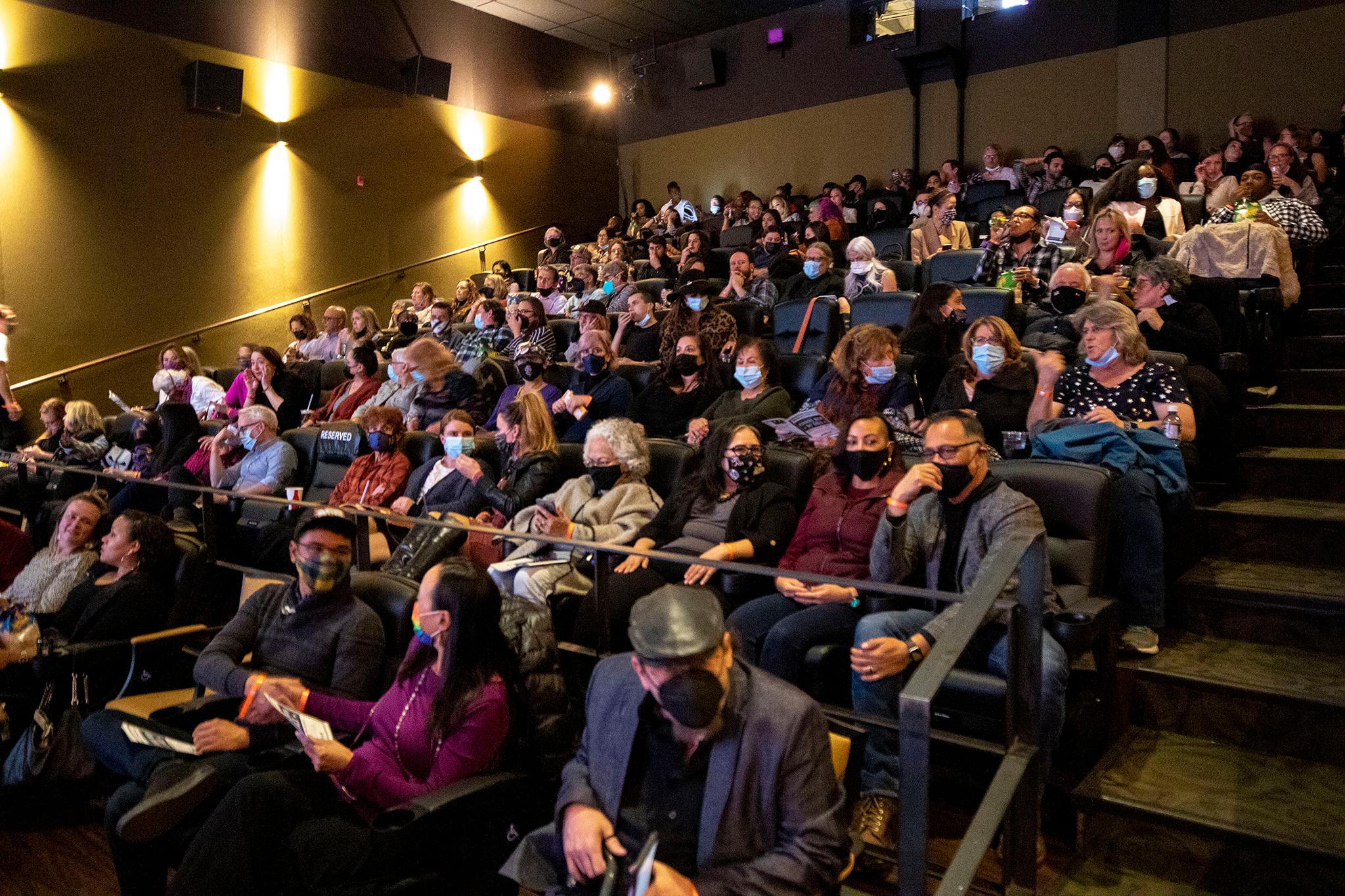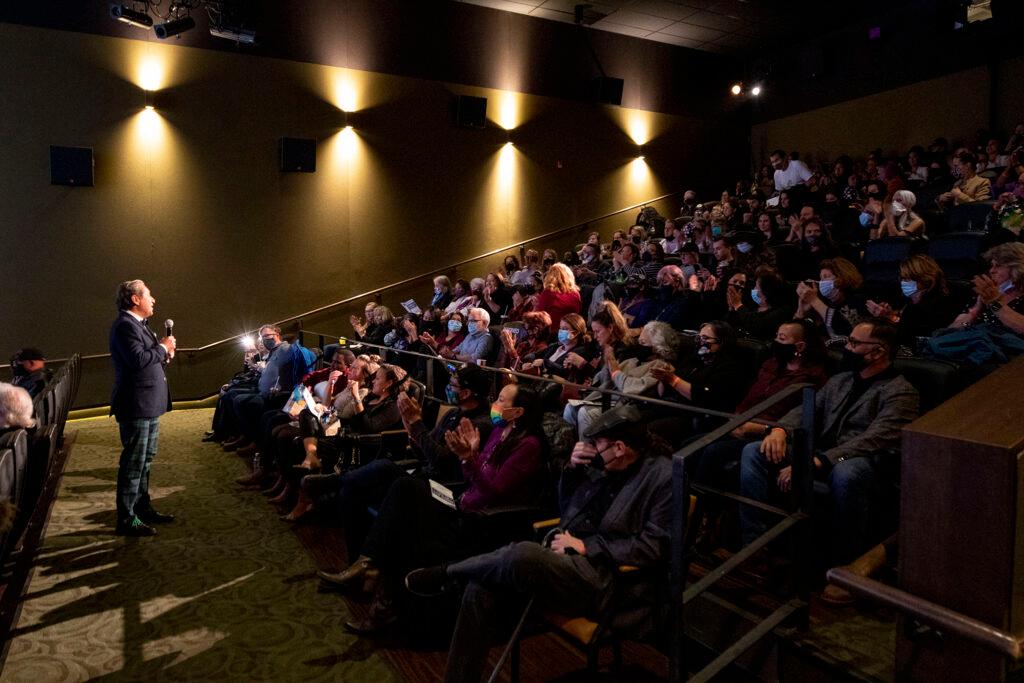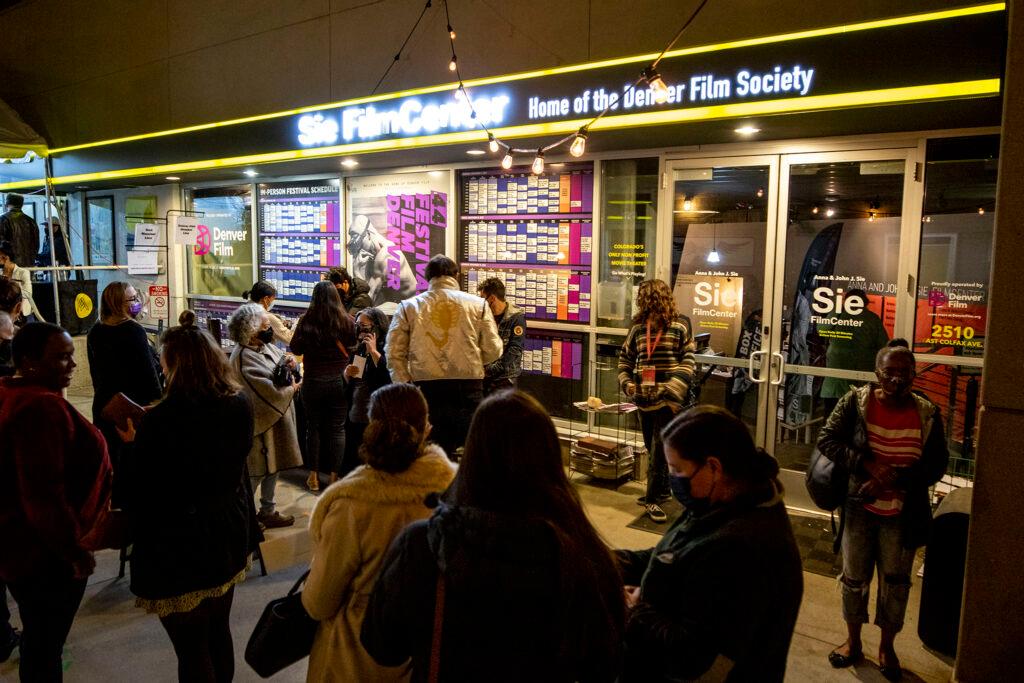
When the Denver Film Festival began 44 years ago, there were only a handful of major festivals in the U.S. Telluride had just begun just four years before. Older festivals like those in New York and San Francisco were located mostly on the coasts. The festival in Utah that would eventually become known as Sundance began the same year as Denver’s in 1978. But back then, no one knew if Denver could support a film festival the way other cities did.
Ron Henderson, one of the co-founders of the Denver Film Festival, said he remembers those first days. Back then, it was known as the Denver International Film Festival.
“There was a word on the street that there was talk about trying to establish a film festival in Denver,” Henderson said. “There was a group of us kind of led by a math professor at [the University of Denver], believe it or not. His name was Peter Warren and he and the woman he was dating at the time, Irene Clurman, who was the art critic at the Rocky Mountain News, we're talking about the cultural landscape in Denver and what was missing and film came up.”
The group of film fans that would start that first festival pooled together their resources and contacts to launch the first festival. They called it “10 Days in May,” a play on the title of the John Frankenheimer movie "Seven Days in May." The first edition only had 78 films in its program, a robust lineup that would grow over time to over 200 titles at this year’s festival. The special guest at that first festival was director Robert Altman. His new film “A Wedding” closed the festival that first year.
“We had no idea of whether it would be successful, whether people would come or their critics would like it, whether the sponsor would get the bang for their buck, Henderson said. “And, to our surprise, it was amazingly successful.”
The opening night at the fest was packed, and so were many of the screenings that followed. Three Cuban movies were shown at the festival that year at the height of the Cold War: Tomas Gutierrez’s “The Last Supper,” Manuel D. Cousin’s “Alicia” and Humberto Solas’ “Lucia.” Henderson remembered screening the films was not without incident, especially during the height of the Cold War.
“On the first Friday of the festival, the first Cuban film was to screen at the Vogue,” he said. “We got a call at the festival office saying if you screen that film, a bomb will go off in the theater. So the police kind of searched the theater, cleared it, and the show went on.”

The Cuban films were among the first of many international films to make their way to Denver over the decades. Other years in the fest focused on Japanese, German and Canadian movies. Henderson says the focus of the festival has always been to bring in movies from outside the U.S. Over time, the festival moved from late spring to fall.
“We're one of the last festivals on the festival calendar. We follow New York, Toronto, Venice, Telluride,” he said. “So all of the buzzy films have risen to the top. And we'd try to pick them up and share them with Denver audiences.”
After their successful debut, the show rolled on. In its second edition, the festival honored Lillian Gish and documentarian Frederick Wiseman among a number of artists. Henderson remembers a screening of “M*A*S*H” was mobbed by crowds at the Paramount Theater in the festival’s fourth year.
“We had Alan Alda to open the festival, and he was at the height of his popularity because of the TV M*A*S*H program,” he said. “There were a horde of people standing out front waiting for him. As soon as we got out of the limo, the crowd just literally crushed in, and this young girl, she must have been like 13 or 14, jumps up and grabs him around the neck. It was kind of scary, but the cameraman from Channel Seven sort of forced their way through the crowd, into the theater and [Alda] to his seat.”
Later, the festival planned on screening Gena Rowlands’ film “Gloria” but were sent a Spanish copy of the Denzel Washington movie “Glory” instead. They had to scramble to find a way to keep people in seats.
“If any of the audience members choose to leave, ask them to come back because Gena has agreed to come and do a Q and A nevertheless,” Henderson said he asked of people in the theater. “So, the audience stayed, she came back and spent about 30 minutes doing a conversation with the audience.”

In its history, the Denver Film Festival has floated around town screening at different theaters. Henderson lists them off: the Ogden, the Vogue, the Flick in Larimer Square, and many, many others. Eventually, the Denver Film Society, now known as Denver Film, found a permanent home at the Sie Film Center on Colfax.
Kevin Smith, chief marketing officer at Denver Film, is familiar with many of Henderson’s stories. One particularly unforgettable year, a snowstorm hit the city just as they brought in filmmakers from Australia.
“Some of the programming team went out and took the VHS tapes for the films and brought them in and basically had an impromptu version of the film festival for everyone who was trapped in the Warwick [Hotel] for a few days,” he said. “We took it as an opportunity to say, ‘I would do this a little bit differently. Let's make it fun for all these filmmakers that we brought in from all over the world,’ and just kind of turned into a party.”
The festival will hit its 45th anniversary next year. Smith and his team are already eyeing the future of what’s next for the festival and what might be in store for its 50th. One of those future things: Organizers are looking closely at diversity and equity as well as how to make the festival more inclusive, accessible and sustainable. Another idea is to bring the festival to the rest of Colorado.
“How do we tie all of those pieces together so that there is a foundation long-term and it's not just a short-term initiative?” Smith said. “If we're ever going to grow further as an organization, we've got to be out in the community, spending a lot more time there and that's going to bring more people back with us.”









